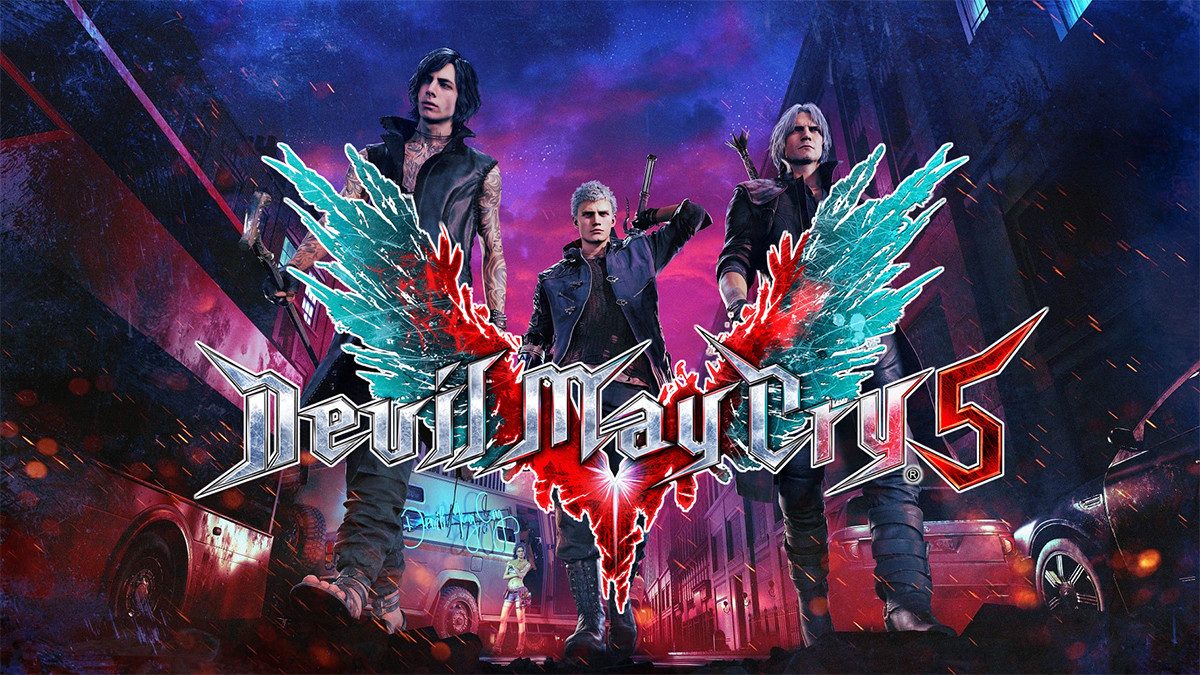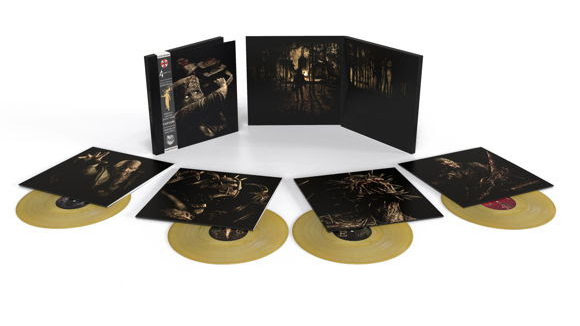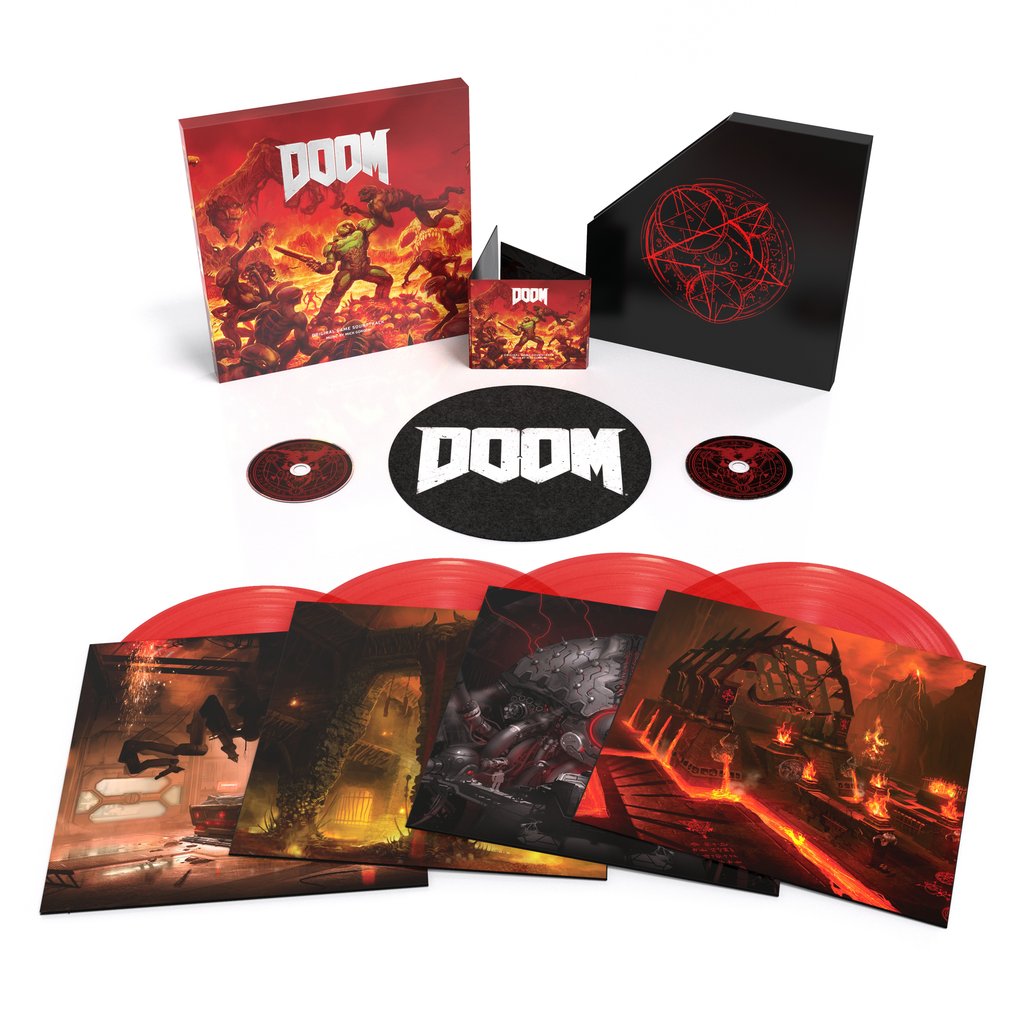So you want to be a... videogames composer: insider tips from label boss Danny Kelleher
Laced Records founder on what it takes to get started, and to succeed in this growing industry
Danny Kelleher is the top dog at Laced Records, a label specialising in releasing videogames soundtracks on all formats, including plush special edition vinyl box sets.

The fast-growing firm has handled releases for many high profile games, including Bloodborne, Borderlands 3, Dead Cells, Devil May Cry 5, DOOM (2016), Gears 5, Mega Man, No Man’s Sky, Resident Evil, RuneScape, Shadow of the Tomb Raider, TEKKEN, Warhammer, and MachineGames' reimagined Wolfenstein series.
We were lucky enough to grab some industry insights and tips for prospective games composers from Danny.
How did Laced Records get started?
I started in video games at the leading UK PR agency, Indigo Pearl back in 2007, whilst studying media at the University of Westminster. I worked with a number of indie and AAA publishers to launch their titles over 5 amazing years and fell in love with the industry and people. In 2012 I left Indigo Pearl to follow my passion for music, managing a couple of unsigned artists and doing PR for a number of major and indie record labels.
In 2015 I realised I really wanted to get back into video games, but still working within music in some capacity so I set up Laced. We began by offering music services to video game developers, providing licensed and original music for video games and trailers.
I then expanded the company into a record label and Laced Records was born. We have been releasing video game merchandise and soundtracks on vinyl, CD, and digitally since 2016. Released in mid-2016, the Hotline Miami: Collector’s Edition Vinyl went on to sell out of three pressings.
Get the MusicRadar Newsletter
Want all the hottest music and gear news, reviews, deals, features and more, direct to your inbox? Sign up here.
The label has since worked with a range of partners — including 2K, Bandai Namco, Bethesda, Capcom, Croteam, Devolver Digital, Hello Games, Games Workshop, Gearbox Software, Jagex, Relic Entertainment, SEGA, and Square-Enix — to release soundtracks for handcrafted indies, classic gaming series, MMOs, and AAA blockbusters.
How does composing music for games differ to composing for film, or television?
The simple answer is: games are interactive and mostly non-linear (apart from cutscenes), whereas films and TV are unchanging once the director and editor finish the final cut.
In all cases, music is composed (or an existing track is picked) to match the mood and action of what’s on screen. But, the problem for game composers is that they have to account for player engagement and actions in terms of timing.
They have to consider whether music should be in the background or foreground; be more or less intense in a given gameplay situation; and how the music might seamlessly switch between varying levels of those parameters.
There are a couple of other key differences to do with how games are produced. With film and TV, the composer normally comes in towards the end, once the film/show is ‘locked’, and they can be a bit distanced from the main creative team — the screenwriter, the director, etc.

While a lot of game composers aren’t particularly close to the development team and get drafted in near the end of the process, there are plenty of examples where they were there right at the beginning of development and/or considered a core member of the development team (for instance Damjan Mravunac with The Talos Principle or Raison Varner with Borderlands 3.)
Composers have to consider how the music works interactively in the game’s engine — known as ‘implementation’
Composers also have to consider the technical side of how the music works interactively in the game’s engine — known as ‘implementation’ — although quite often there are dedicated music/audio programmers who work with them to put the music into the game engine.
Some composers prefer to hand over finished music (sometimes in separate chunks called ‘stems’) and be done with a project; others like to get into the nitty-gritty of music implementation and tweak things themselves.
Presumably, the music needs to be dynamic in many games. How does that work?
It entirely depends on the game. Some games are suited to a simple ‘jukebox’ approach, where music will just play back more or less unrelated to what the player is doing.
Other games, especially modern AAA titles and VR games, might have complex music systems with multiple variables, randomised elements of music, and mixtures of diegetic (i.e. music playing from somewhere in the actual game world) and non-diegetic music (floating over the top.)
In the most sophisticated systems, the player becomes the conductor of the music in many ways
In the most sophisticated systems — for instance the work of Oliviere Deriviere (Vampyr, A Plague Tale: Innocence) or the Borderlands 3 music team — the player becomes the conductor of the music in many ways, as the in-game soundtrack is so responsive.
The most common example is a boss fight: the player character enters the arena during a cutscene, featuring a static piece of music that’s the same every time. When the fight starts, the ‘normal’ action music kicks in.
If the player gets hit and goes down to low health, the music might switch to a ‘you’re in bad shape’ section of more urgent intensity. Or the audio designer might use an EQ filter to muffle the music to make it seem like your character is losing consciousness.
If you’re on top and doing well, maybe the music becomes more triumphant. If the boss switches to its next phase, there might be a musically differentiated part that ups the ante. All of those possibilities have to be wired up to specific versions of the music, and all those parts need to fit together in the same key and tempo to avoid it sounding like a disjointed mess.
What is the common process you go through when making a game's soundtrack? How are you briefed, what milestones do you go through, and what deliverables are common?
Outside of soundtrack releases, Laced’s video game music work in the past has revolved around licensing existing tracks; or commissioning an interesting musician from outside of video games to contribute to a project.
We’ll find out what the lead creatives among the development team have in mind in terms of the tone and aesthetics of the game. We’ll collaborate with them to work out which music artists are a good fit in terms of vibe, and whether tracks will fit into the game in a slightly more general ‘jukebox’ way — as with games such as Ruiner and My Friend Pedro — or at specific moments — as with the story-driven games like Control.
Then it’s a case of checking a track or musician’s availability, and doing the financial and legal paperwork around the collaboration.
Do you need to be able to read music in order to do the job?
Sadly not, just the ability to read the small print of contracts when it comes to licensing existing music. While I personally don’t have a musical bone in my body (the drumkit I was given as a child was confiscated after around 2 years of not being able to play one beat) I do like to think I have a good ear and knowledge of what music and artists could collaborate well on a project to give the producers something unique.
Coming from a background in music has helped me think outside of the box of just working with traditional game composers. I love collaboration. A few years ago I linked award winning composer Austin Wintory and RZA of Wu Tang Clan up for a collaboration tracks for the main boss theme on Devolver’s game, Absovler. The studio were so excited to have RZA onboard after to time negotiating and it was a pleasure to put together.
Where my practical music skills are lacking, we have a team of really experienced supervisors, composers and musicians who are the real creatives behind the stuff we do. I’m now more on the business side, which is equally as important when it comes to the minefield of music licensing.
But I have to give the majority of the creative credit to my awesome team and the amazing developers and composers we work with.

What are some of the common mistakes you see people make when trying to gain work in the industry?
You’re going to find it hard to stand out if your stuff has no distinct voice
One of the biggest mistakes, and this might be unfair for people starting out, is to create original work that simply sounds like a knock-off of something else. Many great composers, artists, writers, etc. encourage their students to ruthlessly copy stuff they like, but only in order to learn their craft.
You’re going to find it hard to stand out if your stuff has no distinct voice and is not reaching for any kind of originality when it comes to those first few games projects.
It’s hard, because some game developers find it difficult to express or find the language to convey their tastes when it comes to music. Projects might not be ‘proper’ professional gigs — they might be small-scale creative collaborations to start with. But a composer’s portfolio of commissioned work (i.e. not practise tracks or covers) should ideally feature some originality of voice.
Game development is a long and sometimes very stressful process, so producers need to know you are not only reliable and great at your craft, but that you’re a team player
Composers have to really put themselves out there to get a gig in such a crowded and competitive industry. They need to go to as many events and meet-ups as they can and make friends first. It’s not about going in with the hard sell.
Game development is a long and sometimes very stressful process, so producers need to know you are not only reliable and great at your craft, but that you’re a team player and will get on with each other on a personal level. There’s not much room for the large egos in this industry (compared to some of the people I met in my time in the music industry, anyway).
What can budding composers and producers do to increase their chances of gaining employment in games music?
1. Practise (in a deliberate way) raw melody and harmony writing. Practise using your tools — instruments, software, etc. Check out interactive music engines like Fmod or Wwise, even if it’s just to begin to understand what they do.
Play lots of different types of games: you don’t have to finish them, you just have to open your mind to the gameplay and music possibilities
2. Reach out to indie developers that you think you could help, either because their work resonates with you, and/or because the level of scale and ambition they’re operating at feels like a good fit. Reach out to other musicians, for instance YouTube cover musicians who are part of the video game music community. Often they are aspiring to be, or already are, session musicians for other composers.
3. Keep an eye on other composers who might be a step or two ahead of you on their career path — check out how they present themselves and their work online, for instance on SoundCloud/Bandcamp/LinkedIn/Twitter. Be careful about becoming too inspired by other composers’ work, although be omnivorous about gathering reference listening and studying music that is markedly different from what you think your ‘home style’ is.
4. Play lots of different types of games: you don’t have to finish them, you just have to open your mind to the gameplay and music possibilities.
5. Be nice… it really does go along way!
Finally, which of your projects are you most proud of and why?
There’s just so many… as a label, Hotline Miami was a real highlight and our first release, so it will always have a special place in my heart. DOOM (2016) was awesome to work on and our biggest selling title to date.
We also found working on No Man’s Sky very exciting as the music was composed by a fairly well know Sheffield based rock band, so I got to dip back into some of my old music rights and commissioning live video recordings of the music and promoting the album around the band’s tour.
It was cool to get back into the world of gigs and live musicians again. But yeah, we love all our records and partners and treat each release with the individual respect and love they deserve and I feel that shows in our products.

The Laced Records label has worked with a range of partners — including Bandai Namco, Bethesda, Capcom, SEGA, and Square-Enix — to release soundtracks for handcrafted indies, classic gaming series and AAA blockbusters. The Laced Records label is part of Keywords Studios, a technical and creative services provider to the videogames industry, with 50+ operational studios across 21 countries and four continents.


MusicRadar is the number one website for music-makers of all kinds, be they guitarists, drummers, keyboard players, DJs or producers...
- GEAR: We help musicians find the best gear with top-ranking gear round-ups and high-quality, authoritative reviews by a wide team of highly experienced experts.
- TIPS: We also provide tuition, from bite-sized tips to advanced work-outs and guidance from recognised musicians and stars.
- STARS: We talk to musicians and stars about their creative processes, and the nuts and bolts of their gear and technique. We give fans an insight into the craft of music-making that no other music website can.










